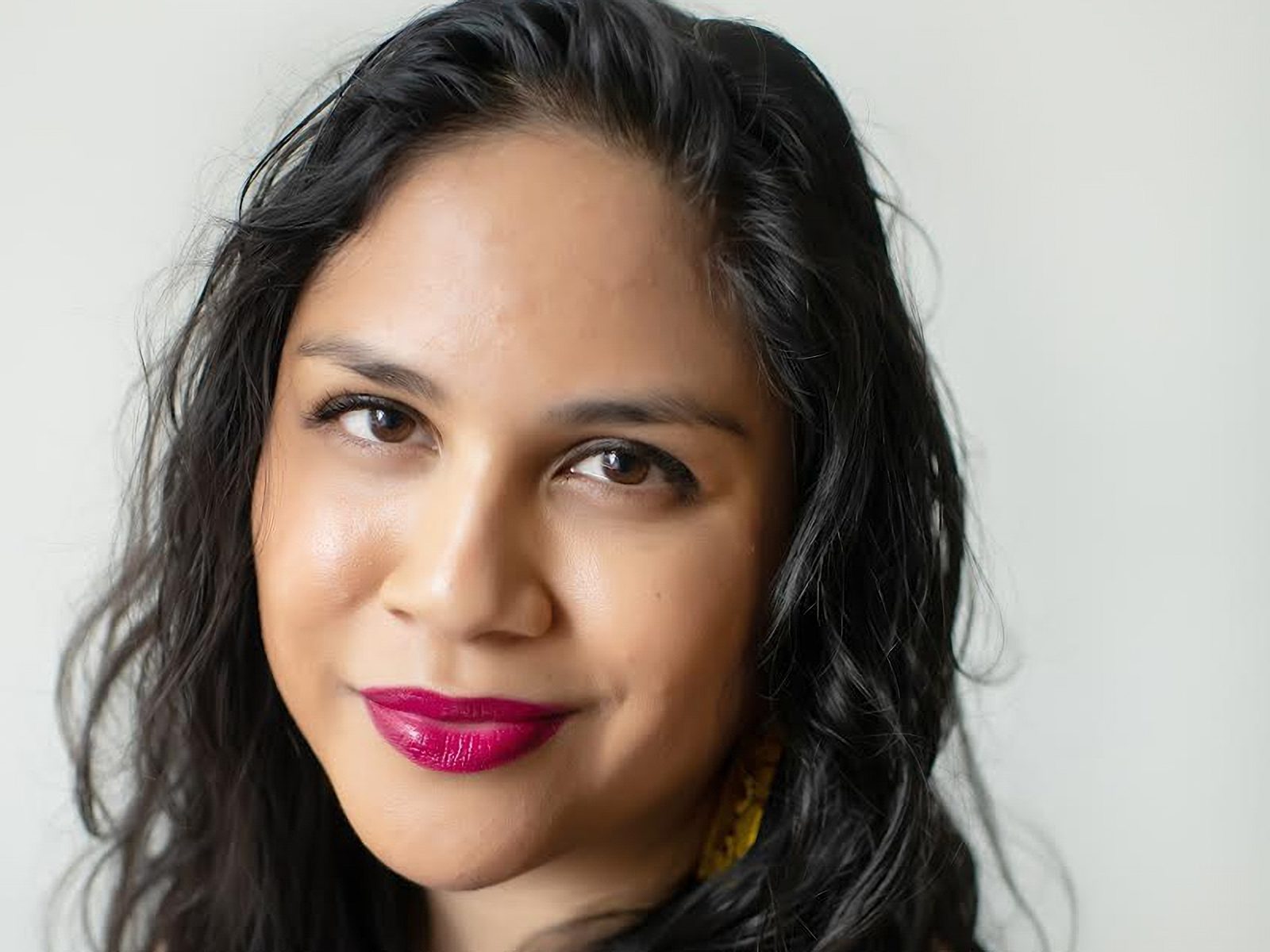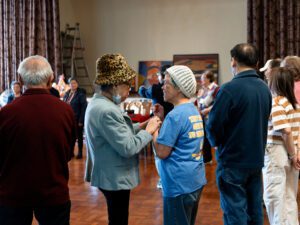 Jamilla Yipp Photography
Jamilla Yipp PhotographyBorderless’ new book club features Chicago author Mia P. Manansala and her cozy mystery book series that centers on the Filipino community.
This week, Borderless launched Literature is Borderless, a new book club that centers on books about Chicago’s immigrant and BIPOC communities. The book club, which kicked off at RoscoeBooks, features Chicago authors Nancy Johnson, author of “The Kindest Lie,“ and Mia P. Manansala, author of “Arsenic and Adobo.”
“Arsenic and Adobo” follows Lila Macapagal, a young 25-year-old who moved back home and is tasked with saving her Tita Rosie’s restaurant. After Lila confronts a notorious food critic at her family’s restaurant, the critic drops dead. Arsenic and Adobo is a lighthearted cozy mystery full of delicious Filipino dishes, meddling aunties, and more. Her forthcoming novel in the Tita Rosie’s Kitchen Mystery series, “Guilt and Ginataan” will be released later this year.
Mia sat down with Borderless to talk about her writing process and why it’s important to tell stories about characters who look like her.
News that puts power under the spotlight and communities at the center.
Sign up for our free newsletter and get updates twice a week.
Borderless Magazine: Tell us about your upbringing in Chicago. How did your community shape who you are today?
Manasala: I was born and raised in Chicago. I grew up in a neighborhood called Hermosa. I didn’t have a large Filipino community, but I had my family. I grew up in an intergenerational household, like many immigrant families. My grandparents immigrated here in the 1970s and 1980s. I grew up with my maternal grandparents, siblings, cousins, aunts, and uncles. Our home became a waystation for other Filipinos who came to Chicago. I had a very large, close-knit family so that impacted how I think about my identity.
Borderless Magazine: Tell us more about how you became a writer. Did you always have this desire to write or did it progress over time?
Manansala: I was one of the few kids in my neighborhood who would get in trouble for reading too much. I would like, eat and read at the same time or spend too much money at the Scholastic book fair. Books were always a part of my life but I never thought it would be a career. We didn’t have generational wealth, and my mother wanted me to be practical. But my parents weren’t discouraging. After graduating from college, I majored in English and minored in Anthropology, I didn’t know what to do next so I taught English in South Korea for three and a half years. I was in a slump after I returned to the U.S., suffering a quarter-life crisis, and then I remembered how much I loved writing. I found a one-day mystery writing class at Story Studio Chicago and that class basically changed my life.
Read More of Our Coverage
Borderless Magazine: Tell us more about the themes in your books. Why cozy mysteries?
Manansala: My mom and I would buddy-read cozy mystery books together and while I enjoyed these books and loved talking about them with my mom, I never saw myself in them. None of what I saw in my life was reflected in any of the books I was reading. I didn’t want the stories to be about trauma, or specifically immigration – I think we deserve a wide plethora to choose from. Those stories matter, yes, but I also want to see people who look like me go on adventures, get to be the hero or find love. I want us to have all of that.
Borderless Magazine: Why is it important to have immigrant or BIPOC characters in your stories or any story?
Manansala: Books are the fastest way to learn about each other. I’m not only writing for myself but for other people. Part of the reason why I think immigrants or BIPOC characters need to be represented in a wide range of genres is because people will boil you down to the very simple things they see in media. They see the trauma, the war stories, or criminal justice, and you only become that one thing in their mind. It’s like when people ask, “Where are you from?” And when I say Chicago, they say, “No, where are you really from?”
People who are not from these backgrounds don’t care about our stories unless it’s written in blood. There’s so little interest in stories about our joy, which is dehumanizing. When you can see someone who looks like you or comes from your community, it’s really transformative. I’m going to get emotional when I tell this story because I always do, but I got an email from a reader who is Asian American. She tells me she’s trying to become a thriller writer but that she’s always made her protagonists white. She writes, “I don’t know if I was doing it intentionally but every thriller I always read had white characters so I assumed if I wanted to be published, I needed to write about white characters.” [Manansala’s voice cracked as she held back tears.] It wasn’t until she read my books that she realized she could put herself in the pages – that she could tell her own story. I intentionally write fluffy beach reads, so to hear that I had that kind of impact on someone always gets to me.
Borderless Magazine: What do you want people to know about the Filipino diaspora?
Manansala: That we’re not monoliths. I’m one of many Filipino authors out there. I’m one of many voices. I don’t speak for all Filipino Americans – I don’t even speak for all queer Filipino women in Chicago. We definitely have issues of identity in the diaspora. But there are so many different ways to be Filipino and what Filipino looks like. I’m happy to add to the conversation.


